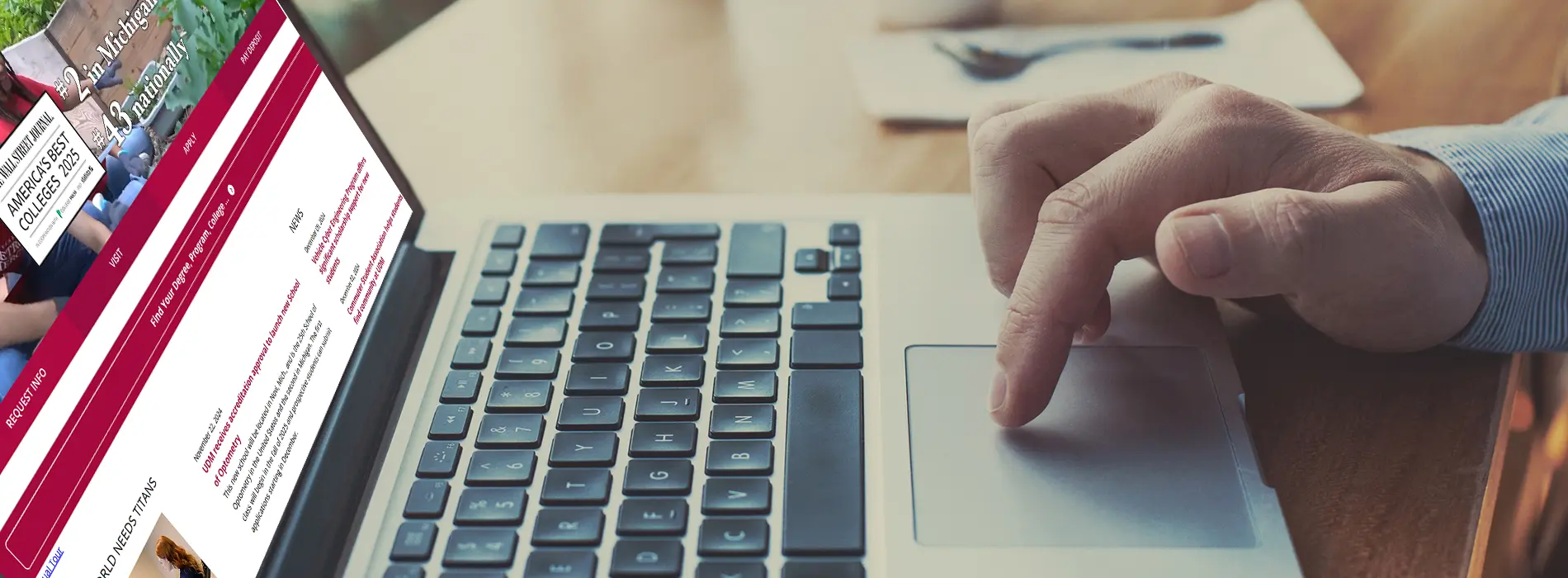Web Toolbox

Welcome to MarCom Web
University websites are the #1 information source used by prospective students and their parents during their college search.
As such, the priorities for our public websites are recruitment and retention of students and advancement, i.e. fundraising.
Marketing & Communications (MarCom) oversees
- visual layout and design of the website
- content quality
- technical quality
- accessibility
- and other aspects of our online presence
Web Requests
The Web Request form is your first resource for website needs. Please use the form for:
- Asking questions or requesting a meeting
- Website maintenance such as changing text, adding images or pages to an existing website
- New or updated information on your bio/profile 'person page'
- Improving website content and effectiveness
- Building a new site or new functionality
- Choosing and integrating a third-party Web system
Content Managers:
Cascade Access
With support from ITS, the MarCom Web team administers the website content management system called Cascade CMS. Access to Cascade is subject to Marcom policies and procedures.
Web Responsibilities and Accessibility
The quality of website content has a direct impact on the University's strategic goals and reputation. Therefore, if you oversee any UDM web pages, you must apply several criteria to the web content.
More about the visual layout and design of the website
 The Marketing and Communications Department controls the visual design of the main University websites. Centralized control of website design is essential for consistency, accessibility and maintainability.
The Marketing and Communications Department controls the visual design of the main University websites. Centralized control of website design is essential for consistency, accessibility and maintainability.
Current website design is based on extensive research and planning, technical requirements, stakeholder review and approval, and testing. The Web design task overlaps with other MarCom activities like graphic design and managing the University’s brand and identity.
Website design includes page structure and layout, font styles, colors, navigation menus, image sizes, etc. The current design has been tested to work on a variety of device/browser combinations. The design is “responsive,” which means that pages appear with an appropriate layout on diverse devices, from full-sized desktop computer screens to mobile phone displays. And the design meets WCAG 2.1 accessibility requirements.
There are several attractive design options available within the University’s approved page template. Feel free to submit a web request to discuss making the most of the available webpage components.
